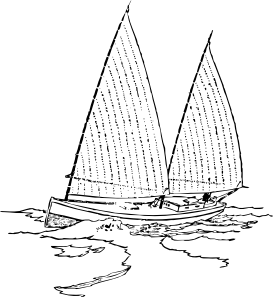
My name is Marie-Claude Duménil. I was born
in the Bush of Tamatave, on the east coast of Madagascar, in 1936. Why wasn’t I
living in France? Because my father was the director of the Malagasy colony
until 1959, so I had to live there. I loved it, my life was so different from a
child’s typical life. As I didn’t speak Malagasy, I didn’t go to school until 7th grade, so I was homeschooled and my mother would teach me everything. I didn’t
have a lot of friends; consequently I was close to my mother, but also to my
father, even if I couldn’t see him very often.
The very
first time I went to France was in 1939; I was six years old. We travelled by
boat for twenty two days, crossing the Suez Canal. It was crazy; I was
incredibly lucky. We stayed for six months, and while we were there, I found that
France was so different from Madagascar; they were two universes apart. And I
have to say, every time I came to France during my childhood, I rather missed
my lovely country…
From 8th grade to my first baccalaureate, I went to a religious school in Antananarivo,
the capital of Madagascar. I really liked it and I made plenty of friends
there. But, unfortunately, I had to move to Paris in 1952 to graduate from high
school for the second time. I went to school in Neuilly. It was pleasant but I really
missed the culture I grew up with, the country I had always lived in. But I
couldn’t return to Madagascar because I had to go to college, and then find a
job to start my new French life.
From 1954,
I studied in college for three years to get my degree in Law. After obtaining
it, I found a job as a legal advisor in Paris, in 1957. I thought it was a
great, a very interesting job, because I worked with a famous lawyer: Mr.
Badinter; it was he who had the death penalty abolished (in 1981) when he
became Minister of Justice.
In 1958, I
met the love of my life, Michel, a marine engineer. We got married after four
incredible years. I stopped working in 1962 to be able to travel around with my
husband everywhere in France for his job. Our first children, two beautiful
girls, were born two years after, and then we had two boys in 1968 and 1969.
When our four children were old enough, I decided to start working again in
Paris. I did so until I retired in 1993.
By then,
our children had started their own adult lives, and so Michel and I bought a
sailboat and decided to travel around the world, especially in the
Mediterranean, for seven months each year. After fourteen years of wonderful
journeys, we had to sell our boat, to the great despair of our grandchildren, but
we needed a calmer retirement, as we weren’t getting any younger!
I couldn’t dream of having had a happier life. We had to give up our boat, but I still travel to visit my beautiful children who live on three different continents. My husband and I have lived through the ups and downs of life, with our happy family and incredible friends. I’m happy with my simple and peaceful life.
I couldn’t dream of having had a happier life. We had to give up our boat, but I still travel to visit my beautiful children who live on three different continents. My husband and I have lived through the ups and downs of life, with our happy family and incredible friends. I’m happy with my simple and peaceful life.
Article by Blandine LOCHU






